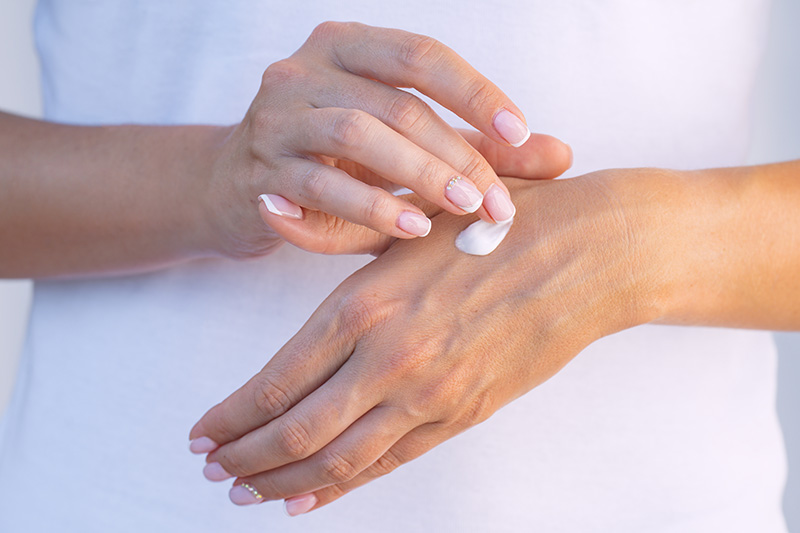Tips for managing winter skin

Winter winds and plummeting temperatures may lead to red, itchy dry skin. This unwelcome seasonal visitor is due in part to lower humidity in both your home and outdoors. How can you preserve that vital layer of moisture and protect your skin from the elements?
One trend which has gained in popularity on TikTok and other social media platforms is 'slugging,' a process in which a person covers their face with a thick layer of Vaseline overnight in order to give the skin a glowing appearance. Vaseline, or petroleum jelly, is an incredibly thick and effective agent for moisturizing dry skin. However, it may not be good for all skin types.
“Most individuals produce enough facial oil, called sebum, so it is not really necessary to use such thick, greasy moisturizer,” says Robert Smith, MD, Assistant Professor of Dermatology at EVMS. “In addition, petroleum jelly can make some existing skin conditions worse, such as acne and rosacea. While I frequently recommend Vaseline for patients with eczema and other dry skin disorders, I rarely recommend “slugging” on the face as a routine practice.”
What is the difference between dry skin and dermatitis? Dr. Smith says most people experience some degree of dry skin in their lifetime, but atopic dermatitis, also known as eczema, refers to a common skin disease that results in very dry, itchy, and inflamed skin. Patients with run-of-the-mill dry skin can be managed by making some lifestyle changes.
Those who already follow a skincare routine may want to rethink applying certain types of products during the winter months. Ingredients like glycolic acid, salicylic acid or retinol can have a drying effect on the skin. While not completely off-limits, using them less frequently will help maintain the skin’s moisture when it is naturally drier.
In addition, Dr. Smith offers these tips for reducing ill effects from winter skin issues:
- use thick, over-the-counter moisturizers (such as fragrance-free creams and ointments), which are more effective than lotions
- take shorter, fewer, and less hot showers
- choose gentle, fragrance-free bar soaps over liquid soaps
- use fragrance-free laundry detergent
- throw out all loofahs and shower rags (these further irritate the skin and become breeding grounds for yeast and bacteria)
- always wear sunscreen with SPF 30 or higher, even on cloudy days
People who continue to experience persistent itch from their dry skin even after making these changes may benefit from seeing a board-certified dermatologist for additional treatments.
For more information about winter skin treatments, or to make an appointment with Dr. Smith, visit EVMS Dermatology or call 757.446.5629.